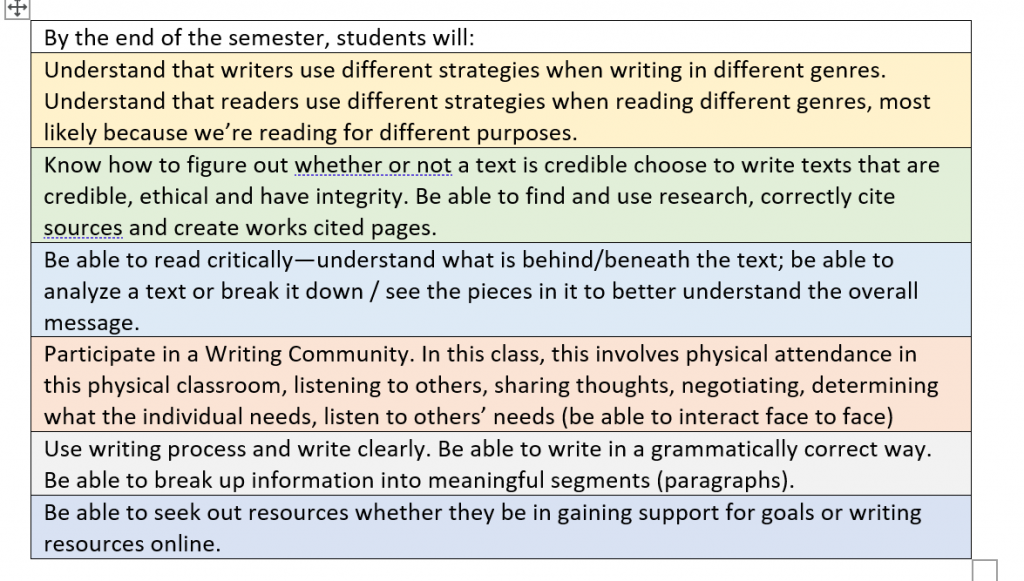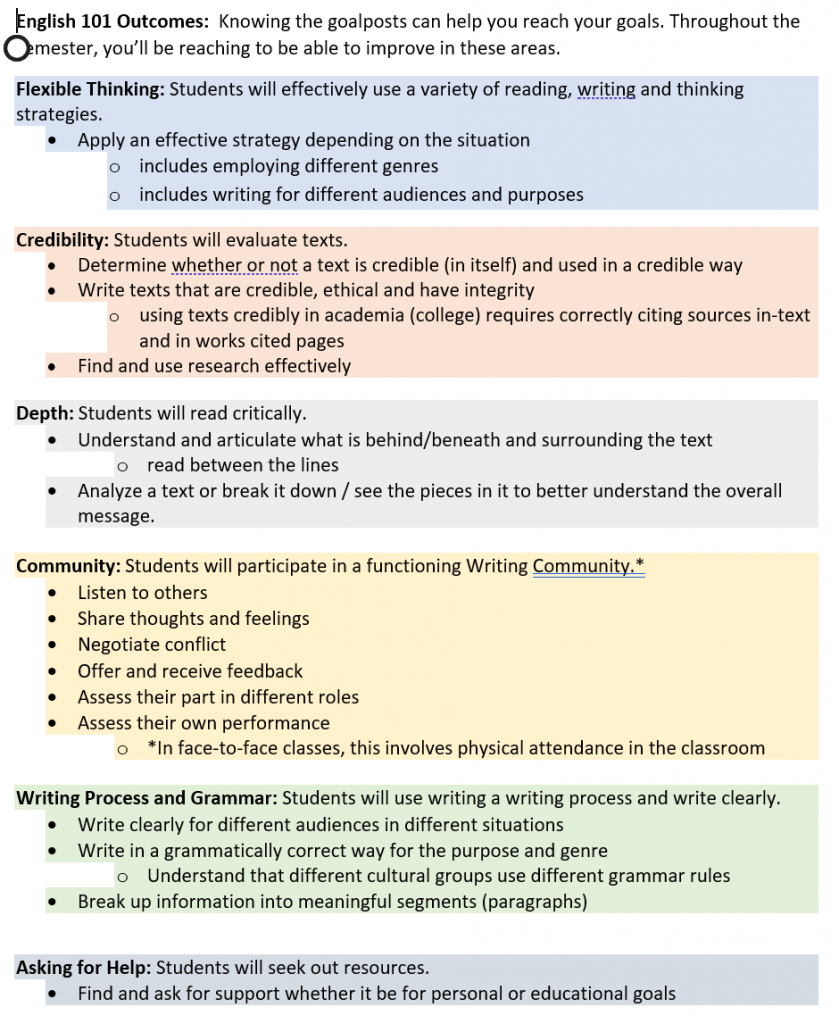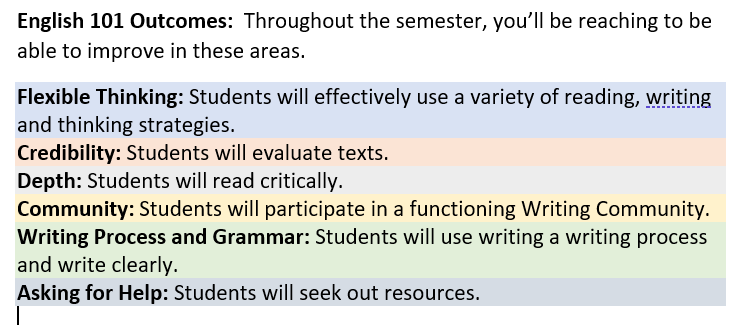The next step I am taking to revise my classes is to work on my Learning Outcomes, which are statements that describe the knowledge and skills students will learn this semester. Since I am going to have my students self-grade, I want the goals to be super clear. Revising the Learning Outcomes will also help me review my overall framework for the course which will help me plan our projects.
I’m always riding that line between articulating the outcomes in a way that helps me lead the students in developing all the complex skills they need to be successful and writing them in a way that is understandable to students.
This year I may have nailed it!
First, here are the outcomes I used last year.

I’m happy with the content of the outcomes themselves, but the statements could be clearer for students.
My college has revised our outcomes over the years. When I started, we had over 30 outcomes that students were to achieve before finishing an associates degree. Then, we went down to 5 outcome statements; each went into some detail. However, most recently, my college has gone broad and simple and has developed these.
Communication – Students communicate effectively.
Problem Solving Critical Thinking – Students think critically to solve problems or explore issues.
Diversity – Students appreciate diversity.
Technology – Students appropriately utilize technology.
Social Responsibility – Students cultivate social responsibility
I’m not on the committee that did the revisions, but I am guessing the college is going with simple outcomes so the instructors can apply them to all of our different subject areas.
I decided to take the set of outcomes from the box above, simplify them while keeping the details bullet-pointed below. It’s important for me to keep the bullet-pointed nuances so that I hold students accountable for achieving those things. If I just used general outcomes, I don’t think I’d remember all the individual skills I’d like students to develop. I’d likely let the students off too easy.
Here are the outcome statements I plan to use:

Though I will use the outcomes with bullet-pointed details for myself, I wanted to represent the outcomes in an even simpler way for students to reference–especially at the beginning of the semester.

I plan to create an infographic with these simplest outcomes for students to reference quickly, and I’ll go over the details in the bullet points when we’re focusing on that particular outcome during class.
I guess the real test to see how well these outcome statements work will be when students use the descriptions to reflect on what they’ve learned. If they find them useful, great. If not, I will revise again.
Peace Out (and In),
Julie


Leave a Comment